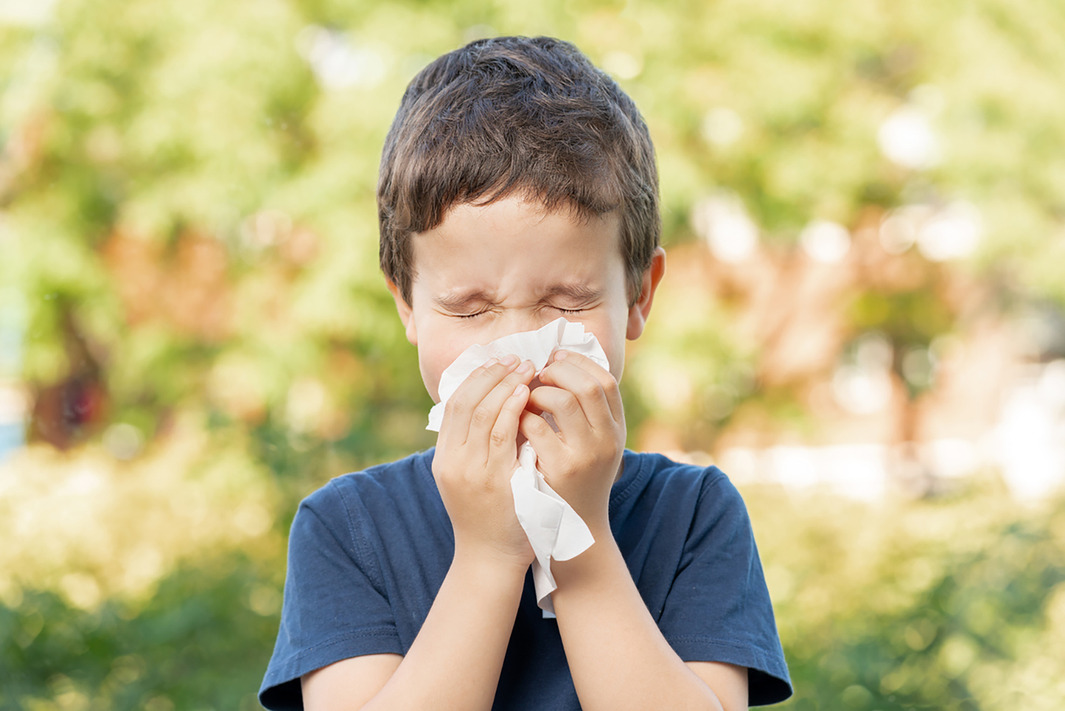
Hay fever and the common cold are two prevalent ailments, especially among children, that often share similar symptoms. However, distinguishing between the two is essential for proper treatment and management. In this article, we’ll explore the differences between hay fever and colds, their symptoms, treatment options, and when it’s necessary to seek advice from a pediatrician.
Understanding Hay Fever (Allergic Rhinitis)
Hay fever, also known as allergic rhinitis, is an allergic reaction triggered by exposure to allergens such as pollen, dust mites, pet dander, or mold spores. In children, hay fever is commonly caused by outdoor allergens like pollen from trees, grasses, and weeds, which are prevalent during specific seasons, such as spring and fall.
Symptoms of Hay Fever in Children:
– Persistent sneezing
– Runny or stuffy nose
– Itchy or watery eyes
– Nasal congestion
– Postnasal drip leading to coughing or throat irritation
– Fatigue or irritability due to disrupted sleep from symptoms
– Allergic shiners (dark circles under the eyes)
– Itchy throat or palate
Treatment for Hay Fever in Children:
- Avoidance of Allergens: Whenever possible, minimize exposure to known allergens by keeping windows closed during high pollen counts, using air purifiers, and showering after outdoor activities.
- Over-the-Counter Medications: Antihistamines, such as loratadine or cetirizine, can help alleviate symptoms of hay fever by blocking histamine receptors and reducing sneezing, itching, and runny nose. Nasal corticosteroid sprays may also be recommended for more severe symptoms to reduce nasal inflammation. *However, we do not recommend the use of any over-the-counter medication without first consulting your pediatrician.
- Allergy Immunotherapy: In cases of severe or persistent hay fever symptoms, allergy shots or sublingual immunotherapy (under-the-tongue tablets) may be recommended to desensitize the child’s immune system to specific allergens over time.
4. Eye Drops: Over-the-counter or prescription antihistamine eye drops can provide relief from itchy, watery eyes associated with hay fever. *Consult your pediatrician before use.
Differentiating Colds from Hay Fever:
While hay fever shares many symptoms with the common cold, there are key differences to consider:
– Duration: Colds typically last for about a week, while hay fever symptoms can persist for weeks or even months, depending on the allergen exposure.
– Fever: Colds may cause a low-grade fever in children, whereas hay fever does not typically produce fever.
– Seasonality: Colds can occur at any time of the year, whereas hay fever symptoms tend to coincide with specific allergy seasons.

When to Seek Advice from a Pediatrician:
It’s essential to consult a pediatrician if:
- Symptoms Persist: If your child’s symptoms persist despite over-the-counter treatments or interfere with daily activities, it’s essential to seek medical advice.
- Severe Symptoms: Severe symptoms such as difficulty breathing, wheezing, or chest tightness require immediate medical attention.
- Concerns about Allergy Testing: If you suspect your child has hay fever or other allergies, a pediatrician can recommend appropriate allergy testing to identify specific triggers and develop a personalized treatment plan.
- Age Considerations: For infants or young children experiencing respiratory symptoms, it’s crucial to seek prompt medical evaluation to rule out more serious conditions such as respiratory infections or asthma.
While hay fever and colds may share similar symptoms, understanding the differences is crucial for appropriate treatment and management. By recognizing the unique characteristics of each condition, parents can better support their child’s health and well-being. If in doubt, always consult your pediatrician for personalized advice and guidance tailored to your child’s specific needs.
